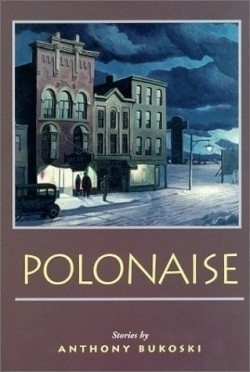
Polonaise
Stories
These twelve stories are narrated by the human detritus that forms the Polish American community in Superior, Wisconsin. In this small community, the characters make cameo appearances in each other’s lives. This is a dying community, full of closed churches, the elderly and the disappointed.
In “Pesthouse,” the opening story, Bukoski relates the history of Franciszka Stasiak Thomasen, alternating between the present, where Franciszka teaches at a third-rate college in humid Louisiana, and her childhood in Superior, Wisconsin, during the winter of 1945. Franny’s syphilitic father has returned from military service in Morocco and Algeria to find his daughter in the isolation hospital, suffering from scarlet fever. As her father descends further into madness, he blames not his venereal disease, but wallows in the “ancestral sickness” of anti-Semitism. He vents his anger on a Mr. Liebmann, whom he blames for his illness. As Franciszka remembers more details from that winter, she wonders if she herself is infected with the ancestral sickness. This exquisite short story demonstrates that Bukoski is a leader in this form. The term polonaise refers to a stately, march-like Polish dance in triple time, consisting primarily of a promenade of couples. Bukoski has chosen his title metaphor well. In “A Concert of Minor Pieces,” Leo Polaski wanders the old neighborhood where “smoke from the Fredericka Flour Mill and the dust from the fiberboard plant and coal dock blew and mixed with the snow.” He walks past closed churches, remembering Polish voices echoing in the neighborhood and thinks, what the heart has owned and had, it never loses. Combining a rich use of symbolism and metaphor, and a gift with language, Anthony Bukoski has created a bittersweet image of Polish Americans.
Reviewed by
Rebecca Maksel
Disclosure: This article is not an endorsement, but a review. The publisher of this book provided free copies of the book to have their book reviewed by a professional reviewer. No fee was paid by the publisher for this review. Foreword Reviews only recommends books that we love. Foreword Magazine, Inc. is disclosing this in accordance with the Federal Trade Commission’s 16 CFR, Part 255.
